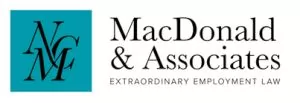On January 1, 2018, the most apparent change to the Employment Standards Act, 2000 (the "ESA") brought about by Bill 148 was implemented: the minimum wage for most employees in Ontario increased from $11.60 per hour to $14.00. The Wynne Government has indicated that if re-elected, this will increase to $15.00 by 2019.
The changes to the ESA brought by the enactment of Bill 148 go beyond the increased minimum wage. In addition to the minimum wage and multiple other changes, Bill 148 brings a new focus on the enforcement by the Ministry of Labour of the provisions and rules in the ESA. This includes a commitment to hire 175 additional Employment Standards Officers, new provisions allowing the Ministry of Labour to publish information about employers given recognition under the ESA, and increased fines for parties convicted of violating the ESA. The Ministry of Labour has also made a public commitment to increase its practice of undertaking proactive workplace investigations, ensuring that investigations are not only triggered by employee complaints.
These new provisions complement the existing ones in the ESA which allow for the publication of information about parties convicted of ESA violations. Considered in conjunction with the new Ministry commitment to proactive investigations, this represents the Government of Ontario telling employers in no uncertain terms that violations of the ESA will be found, penalized, and the violating parties named and shamed in the public eye.
Despite this new focus on enforcement, some employers, named in the media, in the wake January 1, 2018 minimum wage increase, have taken public steps to ameliorate the impact it will have on their business. This includes the legal, but ethically questionable (cutting employee benefits and breaks) and illegal (banning tipping and confiscating any tips as revenue). Not publicized but likely occurring are steps taken by employers outside of the public eye to lessen wage costs, such as deliberately misclassifying employees as independent contractors and paying them less than the minimum wage.
Employer compliance with the ESA is mandatory. Failure to do so will result in this non-compliance being found during an investigation by the Ministry of Labour, a conviction under the Provincial Offences Act, and public naming of the employer and its offences. Beyond the substantial costs associated with each of these is the impact on the employer's public image and reputation as a rule breaker, impossible to quantify in a dollar figure but equally significant.
The content of this article is intended to provide a general guide to the subject matter. Specialist advice should be sought about your specific circumstances.


